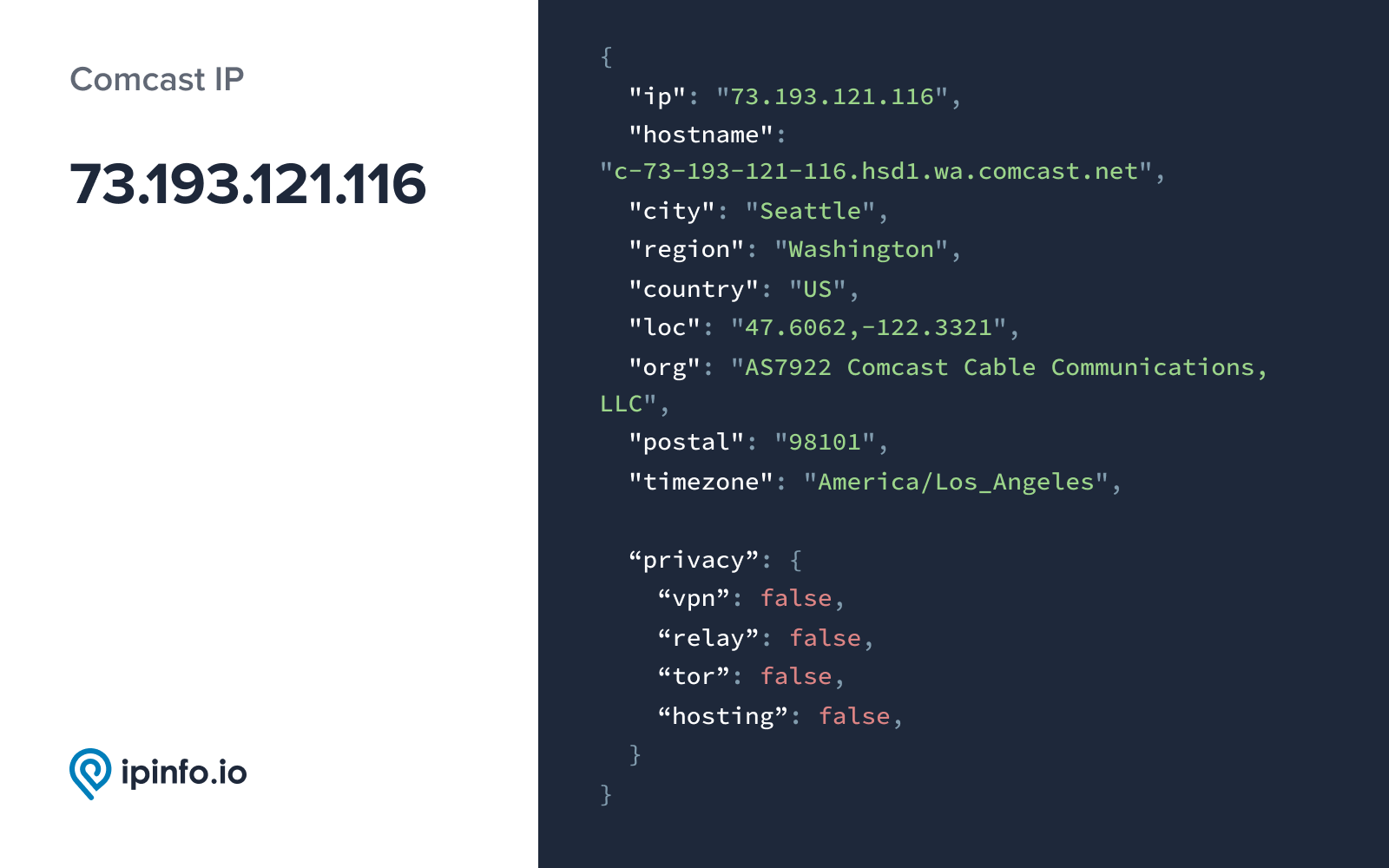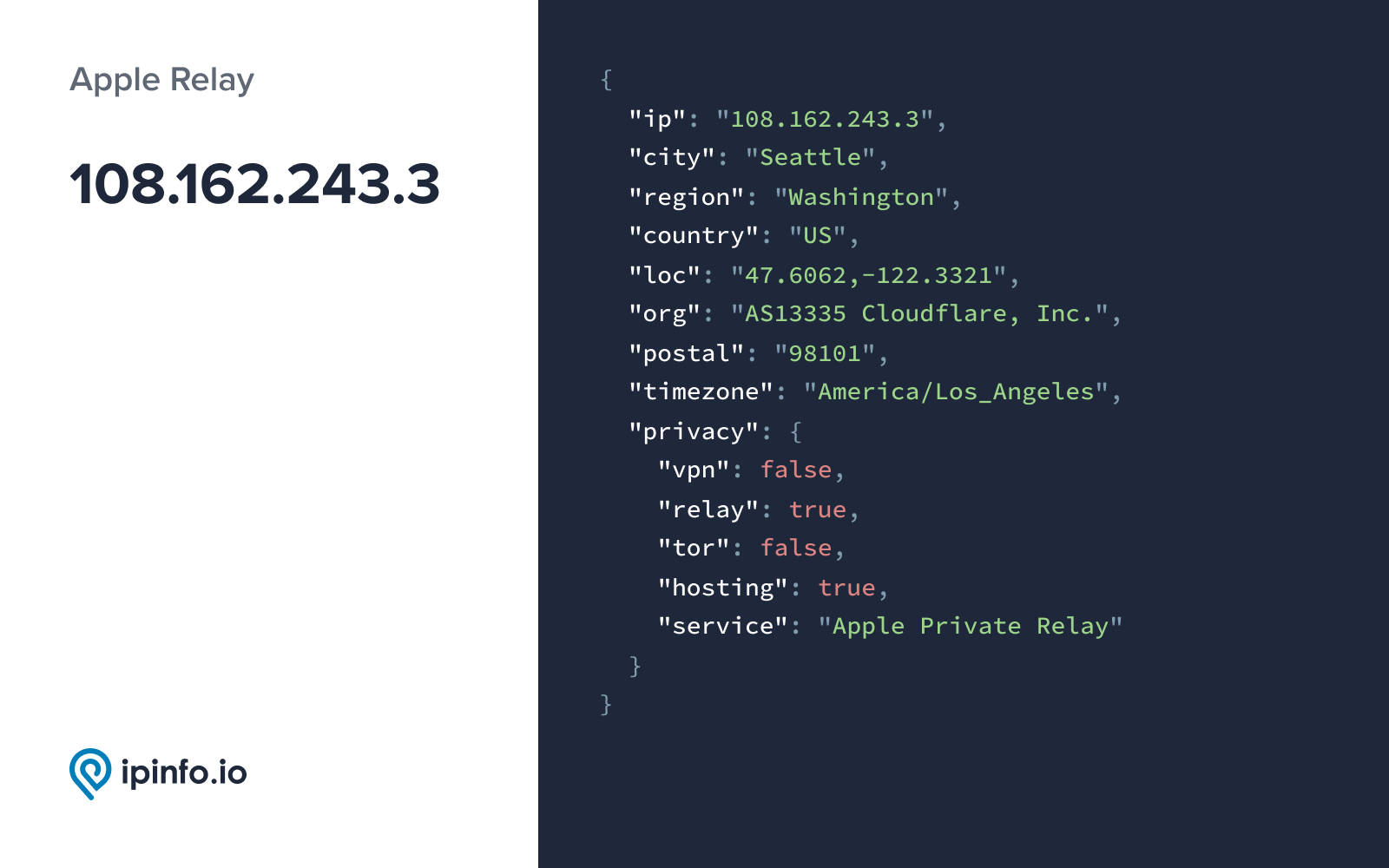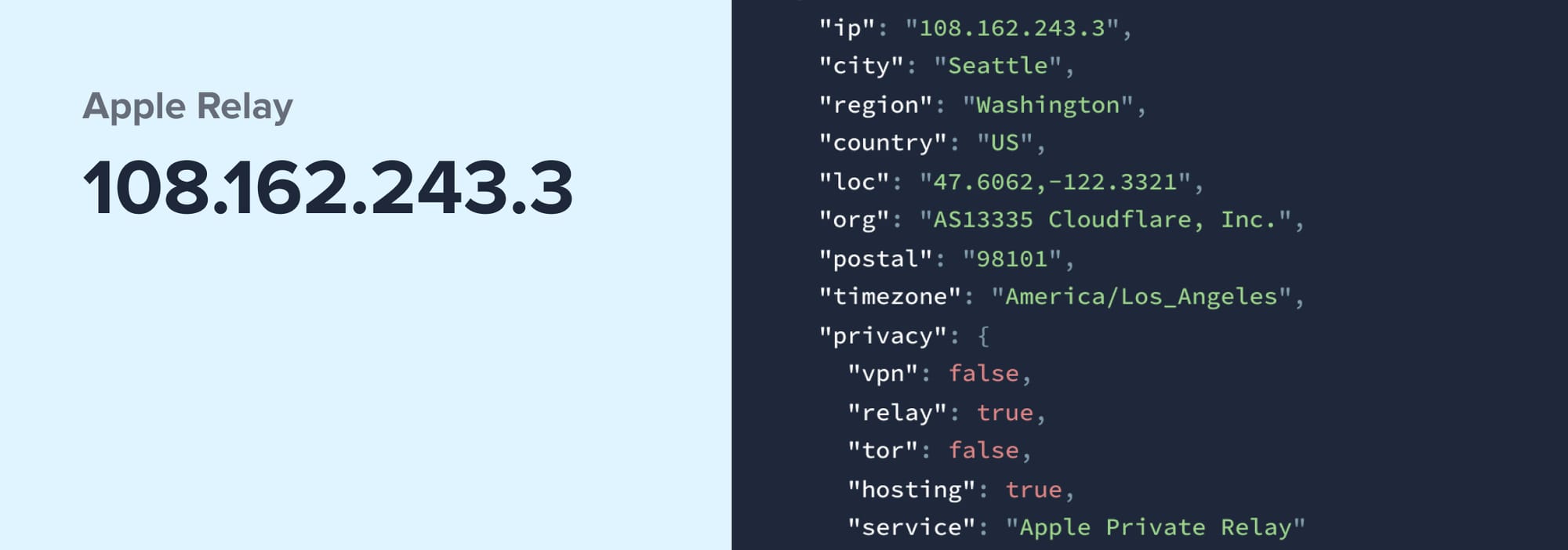 My IP ↗or
My IP ↗orIPinfo is updating several features within our API to allow our users to identify Apple Private Relay traffic.
iCloud Private Relay policies
According to Apple, Private Relay preserves the region and general city IP data while replacing the user's original IP with another assigned IP from the range used by the service. While protecting individuals' privacy, Apple has also put several policies in place to prevent abuse.
- Users cannot pre-select their location at random to avoid geolocation detection.
- Geolocation is validated by relay servers.
- Secured traffic with TLS 1.3.
- Rate limiting and device attestation to prevent fraud.
Private Relay data provides enough information to customize web content or enforce geo-based restrictions without gathering details about specific users' browsing trends.
Why distinguish APRs from VPNs?
IPinfo's data experts have tracked a growing percentage of Apple Private Relay users (keep reading for the specific details about these trends). The steady increase of APR users and the differences between traditional VPNs and APRs have made it essential to distinguish them in IPinfo's Privacy Detection API.
Unlike VPNs, iCloud Private Relay is location-aware. They're not designed to bypass geo-controls but instead pool multiple users behind the same IP. So even though APRs protect the identity and privacy of the user behind individual IPs, this data can still be used for geo-based content, restrictions, and other use cases.
That's why, in response to the growing number of APR users, IPinfo now offers an enhancement feature to our Privacy Detection data for users with paid plans, such as the Business Plan.
Here's a typical response for an IP that isn't masked by any VPNs or APR usage. This response strongly correlates to an IP user's location.

And here's what a typical Privacy Detection response reveals about VPN users. While it identifies that this traffic is being routed through Seattle, the IP user is probably not located in this city since they're using a VPN.

And finally, the enhancement features in the Business Plan reveal these insights about APR users. The following Apple Relay example probably doesn't correspond to a single user, household, or office. Since the IP is classified as an APR service, it represents a pool of users. However, these users are most likely located in Seattle or nearby.

As a result of this enhancement, IPinfo users can distinguish between VPNs, which mask geolocation, and APRs, which provide a level of accurate geolocation data.
What to expect from IPinfo's APR enhancements
Among other steps that we've taken to ensure accurate detection of these anonymous IPs, we've also added Apple's IP geofeed to our database intelligence. Here are some of the measures we've developed in response to Apple's Private Relay.
- New privacy API field for "geo-aware privacy services" in the Business Plan.
- Specific attribution to Apple in the Privacy Detection API with the service field as
"Apple Private Relay".
Growing APR traffic trends
As was mentioned above, we've noticed a steady growth in APR users since Apple launched this feature in the fall of 2021. Assuming the ranges have remained the same, we've noticed an increased amount of traffic from Private Relay as represented by these graphs.

Based on the growth in APR users and the geolocation data that are still available from Apple, it's important for IPinfo users to be able to separate Private Relay from other suspicious hidden identities.
How to access IPinfo's APR enhancements
IPinfo customers don't need to take any action to enable APR detection. This information is returned to API users on the Business Plan via our new relay field for geo-aware privacy services. And database downloads automatically include APR detection fields alongside other privacy detection data such as VPNs and proxies.
As always, IPinfo will continue to keep our datasets up-to-date by detecting and monitoring these IPs. As we need new features or policies in response to new developments (like Apple Private Relay), we will keep you informed and give you the tools you need to develop your use case.
Have more questions? Reach out to one of our data experts!
About the author

Internet Data Expert
